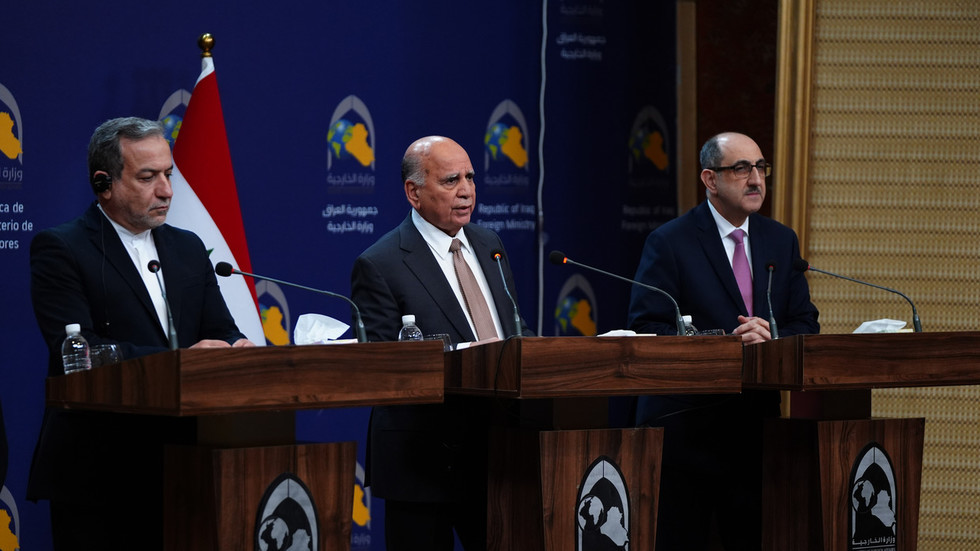World
Iran Pledges Increased Support to Syria, Says Foreign Minister

Iran’s foreign minister reaffirms the country’s commitment to providing more assistance to Syria, strengthening ties amid ongoing regional challenges. Learn more about the statement.
Iranian Foreign Minister Abbas Araghchi stated that Tehran will assist Damascus in repelling the jihadist attacks in Syria, as they pose a threat to the entire region.
Last week, Hayat Tahrir al-Sham (HTS), an affiliate of al-Qaeda, unexpectedly assaulted from its stronghold in Idlib, breaking a ceasefire established by Russia and Türkiye in 2020. So far, HTS militants have captured the cities of Aleppo and Hama, leading to the displacement of over 280,000 people.
“The Takfiri terrorist groups have devised a long-term plan to instigate insecurity and violence in the region,” Araghchi stated on Friday following his meeting with Iraqi and Syrian counterparts in Baghdad.
“Our objective is to enhance consultations and coordination to assist the Syrian government and its people,” he stated.
At the meeting in Baghdad, Iran and Iraq committed to aligning their policies on Syria. Iraqi Prime Minister Mohammed Shia al-Sudani stated that the crisis in Syria significantly affects Iraqi security and must be controlled.
Iraqi President Latif Rashid emphasized the crucial need for solidarity in preserving Syria’s unity, sovereignty, and ensuring the safety of its citizens.
READ ALSO: Iran Announces Successful Rocket Launch Amid Western Criticism
Earlier this week, Araghchi stated that Tehran might contemplate a direct military intervention in Syria if requested by Damascus. According to a senior official speaking on condition of anonymity with Reuters on Friday, Iran has already supplied President Bashar Assad’s government with intelligence and satellite data.
An Iranian official, speaking anonymously, mentioned that Tehran will probably need to dispatch military equipment, missiles, and drones to Syria. The official also noted that Iran has already “taken all necessary steps” to boost the number of its military advisers in Syria and deploy troops there.
In 2011, militants supported by the US and some regional powers initiated an armed insurgency against Damascus. In 2014, a splinter group of al-Qaeda exploited the conflict to proclaim itself as the “Islamic State of Iraq and Syria” (ISIS). The subsequent year, Russia deployed an expeditionary force to Syria at Assad’s request, assisting the government in pushing back both ISIS and other militant groups. Additionally, Iran and Hezbollah—a Lebanese Shia militia—provided support to Damascus.
Kurdish militias, with support from the US, played a significant role in defeating ISIS in northwestern Syria. However, they declined to reconcile with Damascus and maintained control over the region’s farmland and oil resources. In 2017, Türkiye intervened to prevent the Syrian army from capturing Idlib province—the last stronghold of HTS—and later committed to backing a political resolution for Syria.
